Home entertaining and healthy eating are the driving force behind dips and salads
The fresh and chilled offering in convenience stores is constantly broadening - the basics are no longer enough and consumers are demanding a wider chilled offer. Dips and salads are two sectors to benefit from the increased demand for chilled in convenience.
Prepacked salads have grown on the back of the trend towards healthy eating, and Mintel's prepacked and dressed salads report, published in August 2005, confirms this. "A key driver behind recent growth in the market for prepacked salads has been the national preoccupation with the need to eat more healthily," claims the report.
"Health aside, seasonality also plays a huge role in consumer eating behaviour, and sales of salad tend to boom during the summer months. Mintel's research shows that just under half of adults tend to eat more salad in the summer. Corroborating this trend, sales of salad, barbecues and ice cream peaked in 2003, as a direct result of the exceptionally hot weather in that year.
"Value growth in the market for prepacked salads to a large degree has been led by the dynamics of the supply side," adds the report. "Prepacked salads have benefited from both premiumisation and highly prized shelf-space, at the expense of the humble unwashed lettuce. This has allowed the category to gain a real foothold in the convenience market."
Mark Newton, managing director of Florette and director of Soleco, which supplies the You Are What You Eat range of prepacked salads, says: "Mayonnaise and pasta options dominated the salad snack sector for convenience stores, and there was a lack of choice for lunchtime shoppers looking for healthier snack ideas. We were delighted to bring our prepared salad expertise in this sector in partnership with You Are What you Eat, and it is now on schedule to be a £2m brand."
The Florette brand is being extended this year with the launch of the Simply Special prepared salad range for spring and summer. "Our Simply Special range shows Florette going to new lengths to produce inspirational salads," says Newton. "Extras in these mixes, such as toasted seeds and bruschetta, add an authentic all-in-one meal solution."
The Simply Special range comprises: red butterhead & chive salad with escarole, lambs lettuce, red pepper, red salanova, red kidney beans, chives and tortilla chips with orange salsa dressing; mizuna & Thai basil salad with green Thai dressing plus escarole, coriander and lime and poppy sprinkles; wild rocket, ruby chard & baby basil salad with lollo rosso and spinach and a sun-dried tomato & balsamic dressing, plus sun-dried bruschetta; and mizuna & Chinese leaf salad with escarole, carrot, red chard, spring onion and coated pumpkin & toasted seeds with a lime wasabi dressing. Rrp is £1.99 for a 155g-190g pack, depending on the variety.
A good start
While salads tap into the ever-growing trend in healthy eating, the dips market is being driven by the re-emergence in home entertaining. Mintel's appetisers and dips report, also published in August 2005, says: "At-home entertaining has assumed a new sense of importance; in part due to the rising influence of celebrity chefs and partly because consumers have become more accustomed to eating out and ordering takeaways, not just as a treat or special occasion.
"Consequently, entertaining friends and family at home has become a relaxed and enjoyable pastime. Indulgence and the 'treat' factor is perhaps more of a priority when it comes to appetisers and dips. Whether a casual snack, dish for sharing or a sophisticated entrée, the range of appetisers and dips is more expansive and varied than ever before."
The trend towards smaller households will have a mixed impact on the appetisers and dips market, adds the Mintel report. "While the market depends to a large degree on family consumption levels, fewer dependents and generally more affluent households should be well placed to afford the convenience and variety of appetisers and dips."
Mintel forecasts that the UK retail market for appetisers and dips will increase by 31% between 2005 and 2010, to attain an estimated value of £3.7bn. This is equivalent to an increase of 21% in real terms, when the effects of inflation in the food sector are considered.
According to AC Nielsen data, sales of dips in impulse are growing by 3% year on year and now account for 7.5% of the total dips market. Chilled dips make up the lion share at £7.5m and last year grew by 13%, while sales of ambient dips are declining by 9%. Craig Brooks, marketing director at Kavli UK, which owns the Primula brand, says: "Dips are an important area for c-stores - they're an impulse purchase when customers go into shops for a snack in the evening, and dipping is a very strong trend now. It's not an area we operate in, but Greek dips such as houmous are growing and taking dipping into new usage occasions."
just for you
The Primula range of dips is available only in convenience stores and there are five standard flavours - roast garlic, spring onion, sour cream & chive, nacho cheese, and spicy salsa. "These are a long-life product but have the look of a fresh, chilled product," says Brooks.
"Convenience stores have been achieving strong sales by putting them in the chiller and selling them as their chilled dips offer. But the 26-week shelf life means there's no wastage."
Brooks adds that there is strong growth in spicy flavours. "Nacho cheese and spicy salsa were our best performers in the past year. Nacho cheese can be eaten hot or cold - you can heat it up and pour it over tortillas - so the dual usage has helped sales of that flavour."
Last year Kavli launched the Mexican Combo pack, which comprises three 100g pots - salsa, nacho cheese and sour cream - but it is currently distributed only by Nisa.
Supplier: Vitacress
Background: Vitacress, founded more than 50 years ago, is Europe's leading grower and packer of conventional and organic watercress, rocket, baby leaf spinach and salad. The company grows more than 90% of leaves on its farms in the UK and Europe. Being fully vertically integrated means Vitacress delivers the freshest and healthiest salads with an emphasis on quality of eating at the end of shelf life.
Vitacress adopts a 'keep it cool, move it fast' approach, chilling leaves to 3°C within 90 minutes of harvesting. The range of five conventional and four organic products is available in cases of six for convenience and low wastage.
Recent launches: The organic varieties were launched last year, along with a move to washing all leaves in pure spring water with no added chemicals.
Distribution: Nationwide through all leading chilled wholesalers and distributors.
Spinach
This green leafy vegetable derives from the Latin word spina, meaning 'spine', and been immortalised by Popeye in the cartoon series as the veg that makes you more muscular. It may well have that effect as it has a high iron content and as such is great for vegetarians as a valuable source of iron and magnesium. Spinach also contains vitamin C, vitamin B-9 (folate, folic acid) and antioxidants, making it good for helping to prevent cancer and heart disease and giving us healthy bones.
Young baby leaves can be used raw in salads, giving an earthy taste, while older leaves are tougher and require cooking.
Consumers will be looking for leaves without yellowing and will want to avoid large stalks as these need to be removed before eating.
Spinach is quite sandy so it needs a thorough wash before cooking.
The jury seems to be out on how best to cook it - to boil with water or without. Delia Smith recommends packing spinach leaves into a pan with no water but a knob of butter and pinch of salt, and cooking for no more than a couple of minutes. However it's done, spinach needs to be drained well as the vegetable contains lots of water.
To store fresh, bunched spinach, put unwashed veg in a paper towel and then place in a plastic bag and chill. It has a shelf life of two to four days.
retailer: Paul Burnell, Budgens, Sheringham, Norfolk
Fresh strategy: "Sales of fresh and chilled foods make up 40% of our total sales. We've recently introduced a new local supplier for cooked meats and sausages for our deli counter and bacon for the chilled cabinet, which has increased sales. We always try to keep fruit and veg looking really good, as people see this first when they walk in. We have a 4m deli counter and dedicated staff to push it. We're having a refit soon and intend to increase our range of local fresh foods and introduce hot food and sandwiches made to order."
Yoplait dairy crest's drinking yogurt brand Yop will hit the small screen this month with a new national TV advertising campaign as part of a £3.5m marketing investment for 2007.
The campaign kicks off on March 5 for two five-week bursts and focuses on communicating the brand's key message that one 250g glass of Yop contains 37% of the recommended daily allowance of calcium.
The ad campaign comes hot on the heels of the brand's relaunch in January.
Cheestrings, the UK's number one cheese snack, is back on TV until mid-April, as part of a £8m spend.
The ad campaign communicates the message that Cheestrings are a healthy snack that encourages active play.
The 2007 plan for Cheestrings will include a range of new products for the brand and an on-pack promotion to boost sales over the summer period.
Kerry Foods is supporting its adult snacks brand Brunchettas by sponsoring Channel 4's The Charlotte Church Show.
Church's comedy show is expected to appeal to Brunchettas' core target market of working women aged 16-34.
The sponsorship deal will cover the next two series of the show.
Cheddar cheese brand Cathedral City has launched a lower fat version "delivering the same premium quality as original Cathedral City" with 30% less fat.
Cathedral City Lighter has been in development for two years to ensure it meets the quality and taste standard of the existing Cathedral City portfolio. The new variant will be priced from £3.29 for 400g, and will benefit from the £8m marketing investment for the brand in 2007.
Richard Tolley, marketing director at Dairy Crest, says: "Consumers have been let down by the taste of many reduced fat cheeses and have become sceptical, explaining the
poor performance of Cheddar in the reduced fat category. The challenge has been to create a reduced fat cheese suitable for all the family, but without compromising Cathedral City's mature yet mellow taste."
The fresh and chilled offering in convenience stores is constantly broadening - the basics are no longer enough and consumers are demanding a wider chilled offer. Dips and salads are two sectors to benefit from the increased demand for chilled in convenience.
Prepacked salads have grown on the back of the trend towards healthy eating, and Mintel's prepacked and dressed salads report, published in August 2005, confirms this. "A key driver behind recent growth in the market for prepacked salads has been the national preoccupation with the need to eat more healthily," claims the report.
"Health aside, seasonality also plays a huge role in consumer eating behaviour, and sales of salad tend to boom during the summer months. Mintel's research shows that just under half of adults tend to eat more salad in the summer. Corroborating this trend, sales of salad, barbecues and ice cream peaked in 2003, as a direct result of the exceptionally hot weather in that year.
"Value growth in the market for prepacked salads to a large degree has been led by the dynamics of the supply side," adds the report. "Prepacked salads have benefited from both premiumisation and highly prized shelf-space, at the expense of the humble unwashed lettuce. This has allowed the category to gain a real foothold in the convenience market."
Mark Newton, managing director of Florette and director of Soleco, which supplies the You Are What You Eat range of prepacked salads, says: "Mayonnaise and pasta options dominated the salad snack sector for convenience stores, and there was a lack of choice for lunchtime shoppers looking for healthier snack ideas. We were delighted to bring our prepared salad expertise in this sector in partnership with You Are What you Eat, and it is now on schedule to be a £2m brand."
The Florette brand is being extended this year with the launch of the Simply Special prepared salad range for spring and summer. "Our Simply Special range shows Florette going to new lengths to produce inspirational salads," says Newton. "Extras in these mixes, such as toasted seeds and bruschetta, add an authentic all-in-one meal solution."
The Simply Special range comprises: red butterhead & chive salad with escarole, lambs lettuce, red pepper, red salanova, red kidney beans, chives and tortilla chips with orange salsa dressing; mizuna & Thai basil salad with green Thai dressing plus escarole, coriander and lime and poppy sprinkles; wild rocket, ruby chard & baby basil salad with lollo rosso and spinach and a sun-dried tomato & balsamic dressing, plus sun-dried bruschetta; and mizuna & Chinese leaf salad with escarole, carrot, red chard, spring onion and coated pumpkin & toasted seeds with a lime wasabi dressing. Rrp is £1.99 for a 155g-190g pack, depending on the variety.
A good start
While salads tap into the ever-growing trend in healthy eating, the dips market is being driven by the re-emergence in home entertaining. Mintel's appetisers and dips report, also published in August 2005, says: "At-home entertaining has assumed a new sense of importance; in part due to the rising influence of celebrity chefs and partly because consumers have become more accustomed to eating out and ordering takeaways, not just as a treat or special occasion.
"Consequently, entertaining friends and family at home has become a relaxed and enjoyable pastime. Indulgence and the 'treat' factor is perhaps more of a priority when it comes to appetisers and dips. Whether a casual snack, dish for sharing or a sophisticated entrée, the range of appetisers and dips is more expansive and varied than ever before."
The trend towards smaller households will have a mixed impact on the appetisers and dips market, adds the Mintel report. "While the market depends to a large degree on family consumption levels, fewer dependents and generally more affluent households should be well placed to afford the convenience and variety of appetisers and dips."
Mintel forecasts that the UK retail market for appetisers and dips will increase by 31% between 2005 and 2010, to attain an estimated value of £3.7bn. This is equivalent to an increase of 21% in real terms, when the effects of inflation in the food sector are considered.
According to AC Nielsen data, sales of dips in impulse are growing by 3% year on year and now account for 7.5% of the total dips market. Chilled dips make up the lion share at £7.5m and last year grew by 13%, while sales of ambient dips are declining by 9%. Craig Brooks, marketing director at Kavli UK, which owns the Primula brand, says: "Dips are an important area for c-stores - they're an impulse purchase when customers go into shops for a snack in the evening, and dipping is a very strong trend now. It's not an area we operate in, but Greek dips such as houmous are growing and taking dipping into new usage occasions."
just for you
The Primula range of dips is available only in convenience stores and there are five standard flavours - roast garlic, spring onion, sour cream & chive, nacho cheese, and spicy salsa. "These are a long-life product but have the look of a fresh, chilled product," says Brooks.
"Convenience stores have been achieving strong sales by putting them in the chiller and selling them as their chilled dips offer. But the 26-week shelf life means there's no wastage."
Brooks adds that there is strong growth in spicy flavours. "Nacho cheese and spicy salsa were our best performers in the past year. Nacho cheese can be eaten hot or cold - you can heat it up and pour it over tortillas - so the dual usage has helped sales of that flavour."
Last year Kavli launched the Mexican Combo pack, which comprises three 100g pots - salsa, nacho cheese and sour cream - but it is currently distributed only by Nisa.
meet the supplier
Supplier: Vitacress
Background: Vitacress, founded more than 50 years ago, is Europe's leading grower and packer of conventional and organic watercress, rocket, baby leaf spinach and salad. The company grows more than 90% of leaves on its farms in the UK and Europe. Being fully vertically integrated means Vitacress delivers the freshest and healthiest salads with an emphasis on quality of eating at the end of shelf life.
Vitacress adopts a 'keep it cool, move it fast' approach, chilling leaves to 3°C within 90 minutes of harvesting. The range of five conventional and four organic products is available in cases of six for convenience and low wastage.
Recent launches: The organic varieties were launched last year, along with a move to washing all leaves in pure spring water with no added chemicals.
Distribution: Nationwide through all leading chilled wholesalers and distributors.
spotlight
Spinach
This green leafy vegetable derives from the Latin word spina, meaning 'spine', and been immortalised by Popeye in the cartoon series as the veg that makes you more muscular. It may well have that effect as it has a high iron content and as such is great for vegetarians as a valuable source of iron and magnesium. Spinach also contains vitamin C, vitamin B-9 (folate, folic acid) and antioxidants, making it good for helping to prevent cancer and heart disease and giving us healthy bones.
Young baby leaves can be used raw in salads, giving an earthy taste, while older leaves are tougher and require cooking.
Consumers will be looking for leaves without yellowing and will want to avoid large stalks as these need to be removed before eating.
Spinach is quite sandy so it needs a thorough wash before cooking.
The jury seems to be out on how best to cook it - to boil with water or without. Delia Smith recommends packing spinach leaves into a pan with no water but a knob of butter and pinch of salt, and cooking for no more than a couple of minutes. However it's done, spinach needs to be drained well as the vegetable contains lots of water.
To store fresh, bunched spinach, put unwashed veg in a paper towel and then place in a plastic bag and chill. It has a shelf life of two to four days.
Talkback
retailer: Paul Burnell, Budgens, Sheringham, Norfolk
Fresh strategy: "Sales of fresh and chilled foods make up 40% of our total sales. We've recently introduced a new local supplier for cooked meats and sausages for our deli counter and bacon for the chilled cabinet, which has increased sales. We always try to keep fruit and veg looking really good, as people see this first when they walk in. We have a 4m deli counter and dedicated staff to push it. We're having a refit soon and intend to increase our range of local fresh foods and introduce hot food and sandwiches made to order."
New products
Yoplait dairy crest's drinking yogurt brand Yop will hit the small screen this month with a new national TV advertising campaign as part of a £3.5m marketing investment for 2007.
The campaign kicks off on March 5 for two five-week bursts and focuses on communicating the brand's key message that one 250g glass of Yop contains 37% of the recommended daily allowance of calcium.
The ad campaign comes hot on the heels of the brand's relaunch in January.
Cheestrings, the UK's number one cheese snack, is back on TV until mid-April, as part of a £8m spend.
The ad campaign communicates the message that Cheestrings are a healthy snack that encourages active play.
The 2007 plan for Cheestrings will include a range of new products for the brand and an on-pack promotion to boost sales over the summer period.
Kerry Foods is supporting its adult snacks brand Brunchettas by sponsoring Channel 4's The Charlotte Church Show.
Church's comedy show is expected to appeal to Brunchettas' core target market of working women aged 16-34.
The sponsorship deal will cover the next two series of the show.
Cheddar cheese brand Cathedral City has launched a lower fat version "delivering the same premium quality as original Cathedral City" with 30% less fat.
Cathedral City Lighter has been in development for two years to ensure it meets the quality and taste standard of the existing Cathedral City portfolio. The new variant will be priced from £3.29 for 400g, and will benefit from the £8m marketing investment for the brand in 2007.
Richard Tolley, marketing director at Dairy Crest, says: "Consumers have been let down by the taste of many reduced fat cheeses and have become sceptical, explaining the
poor performance of Cheddar in the reduced fat category. The challenge has been to create a reduced fat cheese suitable for all the family, but without compromising Cathedral City's mature yet mellow taste."
















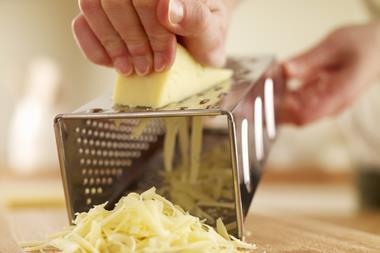
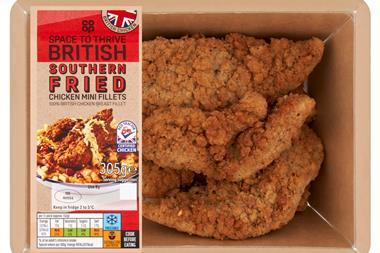
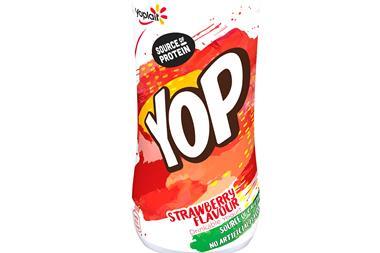
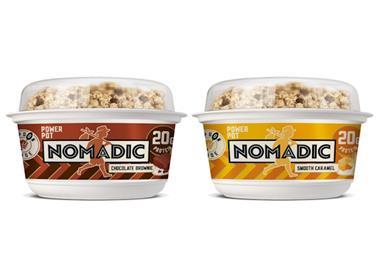
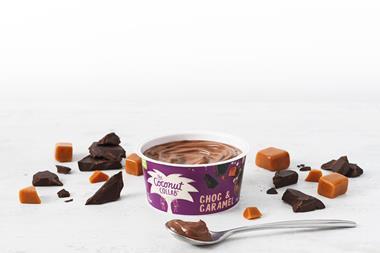
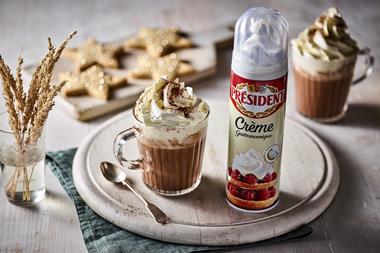


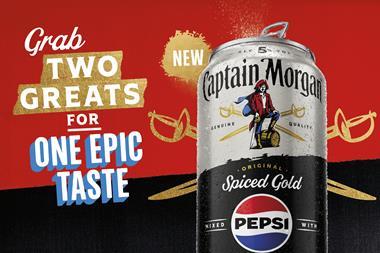
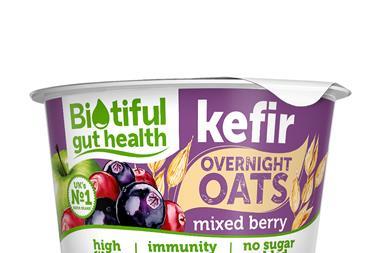

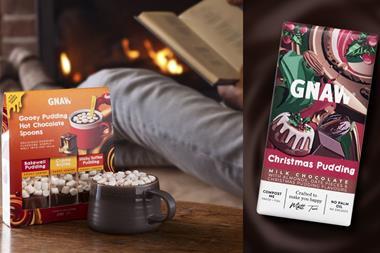
No comments yet